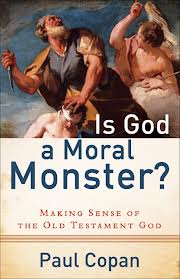Part of our theodicy for the problem of evil includes the point that it was logically impossible for God to create a world in which humans enjoyed free will (a good thing), and yet were unable to use that freedom to choose evil as well as the good. I accept that as true, and yet Christianity proclaims there is coming a day in which there will be a world consisting of humans with libertarian free-will, who will never choose evil: heaven. The future hope of Christians seems to undermine one of the central premises in our theodicy. Can this be reconciled?
One might point out that the future world void of evil is only possible because God will glorify our humanity. But this is not a solution; it is an admission of the problem. Glorification is being put forward, not to show that such a world cannot exist, but rather to explain how it will become a reality. If in the future God is able—through glorification—to make human beings such that they have free will, and yet will not choose evil, then it falsifies the claim that God cannot create a world in which humans enjoy libertarian free will, and yet never choose evil. Indeed, He will do so in the future. In light of such, we might ask why God did not do this from the onset. Why didn’t He create humans in a glorified state to begin with, if glorified humans can exercise free will and yet not choose evil?
I’ve been mulling these questions around in my mind, and here is a possible explanation I have come up with. Could it be that the presence of sin—and our subsequent struggle against it—are necessary to create the kind of free creatures who will not exercise their free will to choose evil? Is God using evil as an immunization of sorts, in which our experience with it actually creates in us a hatred for it, to the extent that if our fallen nature were removed, we would always choose the good in the future—a choice we would not be able to make without first experiencing evil (a la Adam)? In this schema, evil is used as a divine teaching tool to create in us the ability to always and freely choose the good. Our present problem consists of our inability to actually perform what we presently will to perform because of our fallen nature. But in the end, God will restore humanity to its original state—removing from us our natural propensity toward evil—so that we can truly perform what we have learned to will in this life: the good.
On this proposal, evil is necessary to exercise our moral being to the point of maturity, so that in the next life we will only choose the good, and will do so freely. The purpose of glorification is not to remove the possibility of choosing evil, but to remove the barrier that is currently preventing us from choosing what we want to choose: the good.
What do you think about this proposal? Do you have a different one?
 Sometimes we are damned if we do and damned if we don’t. Let me give you two examples where Christians cannot seem to win with non-Christians.
Sometimes we are damned if we do and damned if we don’t. Let me give you two examples where Christians cannot seem to win with non-Christians. When something bad happens, it’s common for people to offer the encouragement that “everything happens for a reason.” Is it really true, however, that everything that happens, happens for a reason? To answer that question we need to explore what we mean by “everything,” “for” and “reason.”
When something bad happens, it’s common for people to offer the encouragement that “everything happens for a reason.” Is it really true, however, that everything that happens, happens for a reason? To answer that question we need to explore what we mean by “everything,” “for” and “reason.” Probably the most-cited argument against the existence of a theistic God is the logical form of the problem of evil, which argues that the existence of an all-good and all-powerful God is logically incompatible with the existence of evil because an all-good God would want to prevent evil and an all-powerful God could prevent evil, and yet evil exists. From this, it follows that God is not all-powerful, not all-good, or more likely does not exist at all. There could be a world in which God exists, or there could be a world in which evil exists, but there can be no world in which both God and evil exist. Since it’s empirically evident that evil exists, God does not.
Probably the most-cited argument against the existence of a theistic God is the logical form of the problem of evil, which argues that the existence of an all-good and all-powerful God is logically incompatible with the existence of evil because an all-good God would want to prevent evil and an all-powerful God could prevent evil, and yet evil exists. From this, it follows that God is not all-powerful, not all-good, or more likely does not exist at all. There could be a world in which God exists, or there could be a world in which evil exists, but there can be no world in which both God and evil exist. Since it’s empirically evident that evil exists, God does not.





